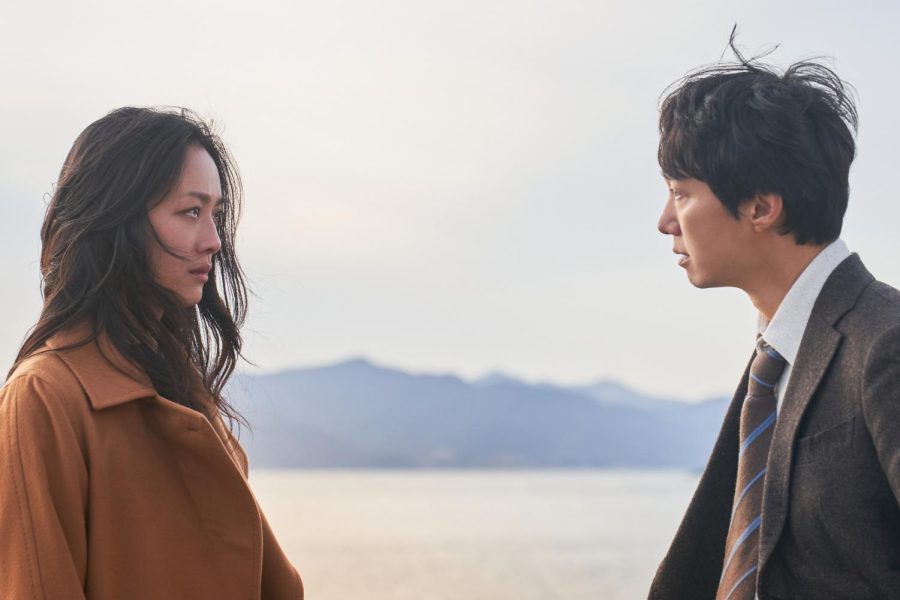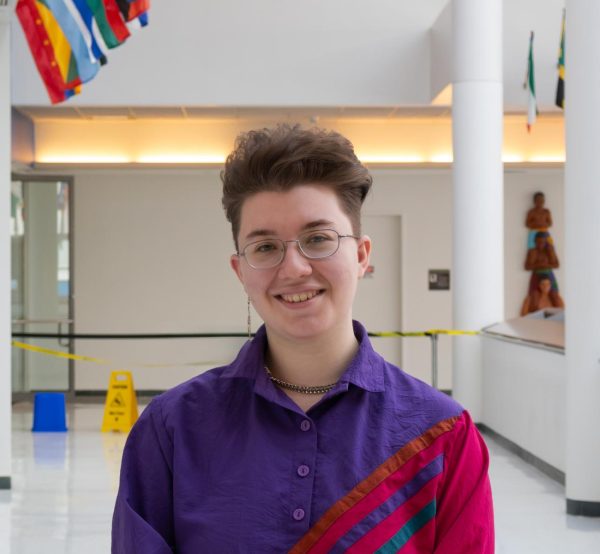Desire and the state are rivetingly perverse in ‘Decision To Leave’
November 6, 2022
In “Decision To Leave,” South Korean writer-director Park Chan-wook moves away from the burning intensity of his former films. Instead he chooses to depict the smoldering desire sparked between police detective Hae-joon and murder suspect Seo-rae as he investigates her husband’s climbing death.
Park gained critical acclaim for his R-rated reflections on violence and eroticism with “Oldboy” and “The Handmaiden.” Park and his frequent collaborator Jeong Seo-Gyeong’s script is tasked with providing fertile opportunities for their actors to build a chemistry that goes beyond the words its carefully guarded protagonists cannot bring themselves to say.
Park Hae-il plays Hae-joon, whose reticence is that of a mild-mannered man whose sense of honor is tied up in his obsessive hunt for killers — an entire wall of his apartment is devoted to crime-scene photos of their victims in a disturbing memorial.
It’s an endless, thankless quest that keeps him in cosmopolitan Busan while his witty, blameless, if a little underdeveloped, wife Juang-an, portrayed by Lee Jung-hyun, remains in quiet, melancholically-foggy Ipo and sees him on weekends.
The air of almost self-destructive inscrutability Seo-rae, played by Tang Wei, projects in the face of suspicion that attracts Hae-joon at first sight— she remains in sharp focus as everything around her blurs—belies her own vulnerability.
She constantly navigates forces beyond her control as a Chinese immigrant grappling with a language barrier under the unblinking eye of the legal system, and a home care aide accustomed to the fantasies projected onto the providers of feminine-coded labor.
In less deft hands, the film’s narrative might have spent an outsized amount of time attempting to neatly link the abnormalities of its protagonists with a single, easily-explainable cause in their lives, succumbing to the flattening potential some trauma plots have.
Instead, although Seo-rae’s backstory is fleshed out with flashbacks, the script rises to the more interesting challenge of building a wordless intimacy between the two in the present through the way Hae-joon’s investigation draws them both deeper into the mechanisms of state surveillance.
Seo-rae exists first as an idea — a collection of immigration papers, hospital records and employment information assembled at a precinct, a reflection in interrogation room mirrors. She becomes real to Hae-joon on his stakeouts as he watches her life through binoculars. Reality and fantasy blur in sequences where he imagines himself within breathing distance.
But just as Seo-rae is too complex and contradictory to be simply another femme fatale— even her home’s wallpaper isn’t just one thing, its overlapping blue triangles creating an optical illusion of either mountains or waves—she isn’t solely defined by passive victimhood. She watches too.
She locks eyes with Hae-joon in the police station as they indulge in the sensual domesticity of an expensive sushi lunch. She cheerfully greets him when he blows his cover on a stakeout in front of her home by falling asleep in his car, his insomnia temporarily cured by her distant presence. She assembles a make-shift language of translatable voice recordings and texts to give a version of herself to him.
The violation that characterizes the state’s coldly voyeuristic gaze, the way it treats those it deems guilty until innocent, is emphasized through its contrast with the shockingly real desire Hae-il and Tang play as barely-repressed.
There’s an untenable tension between Hae-joon’s intimacy with Seo-rae and his loyalty to his role as a police detective in a surveillance state built by ordinary, everyday people that enmeshes him with death — renders him more dead than alive — and can only can only dole out the punishments it arbitrarily deems just rather than prevent harm or offer salvation.
That tension is underscored by the calculated anxiety of cinematographer Kim Ji-yong’s camerawork. It’s flush with shots both uncomfortably long and startlingly short, vertigo-inducing scenes on mountaintops, pans over vast and isolating landscapes and angles more unnerving than any funhouse mirror.
When it finally erupts in the second, much faster-paced half of the film, which clocks in at over two hours long, even missing a few of its rapid-fire twists and turns wouldn’t make it any less darkly thrilling.
There’s a reason “Decision To Leave” won Park Best Director at its May debut at the 2022 Cannes Film Festival. It’s impossible to look away from a work where a jump cut to a corpse’s perspective of the blow flies crawling over its eyes isn’t nearly as perverse as a long yearned for kiss.








